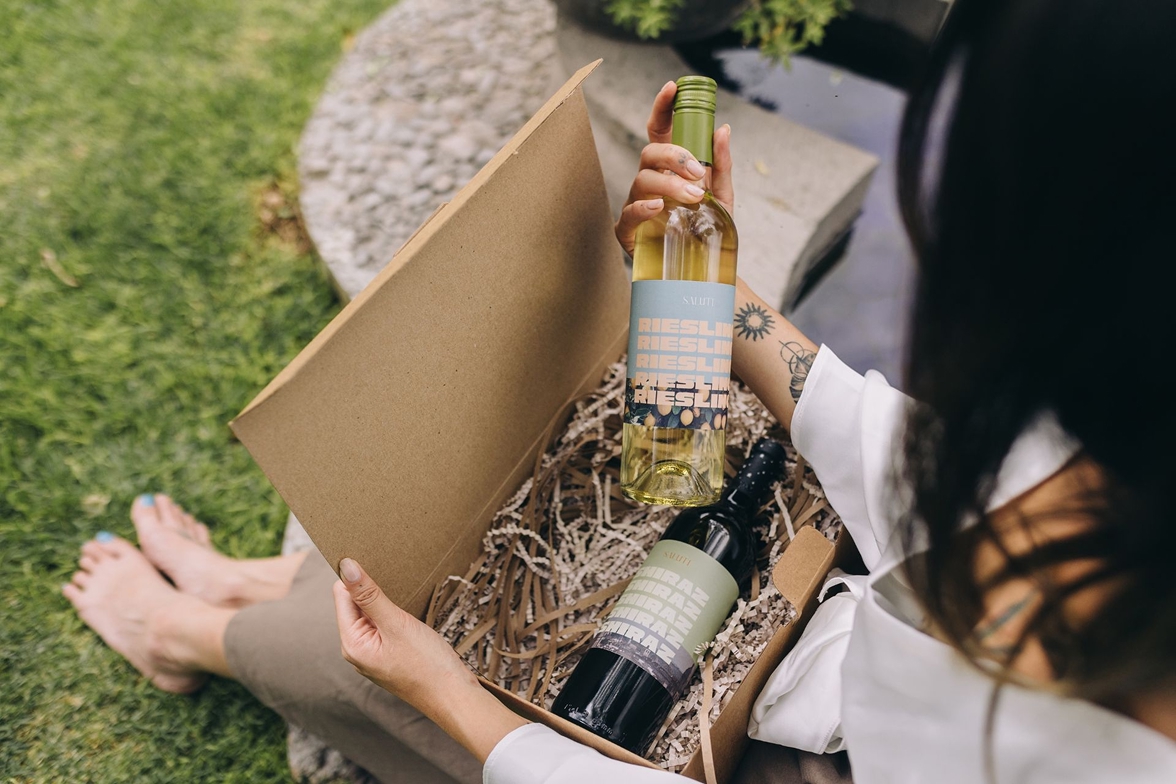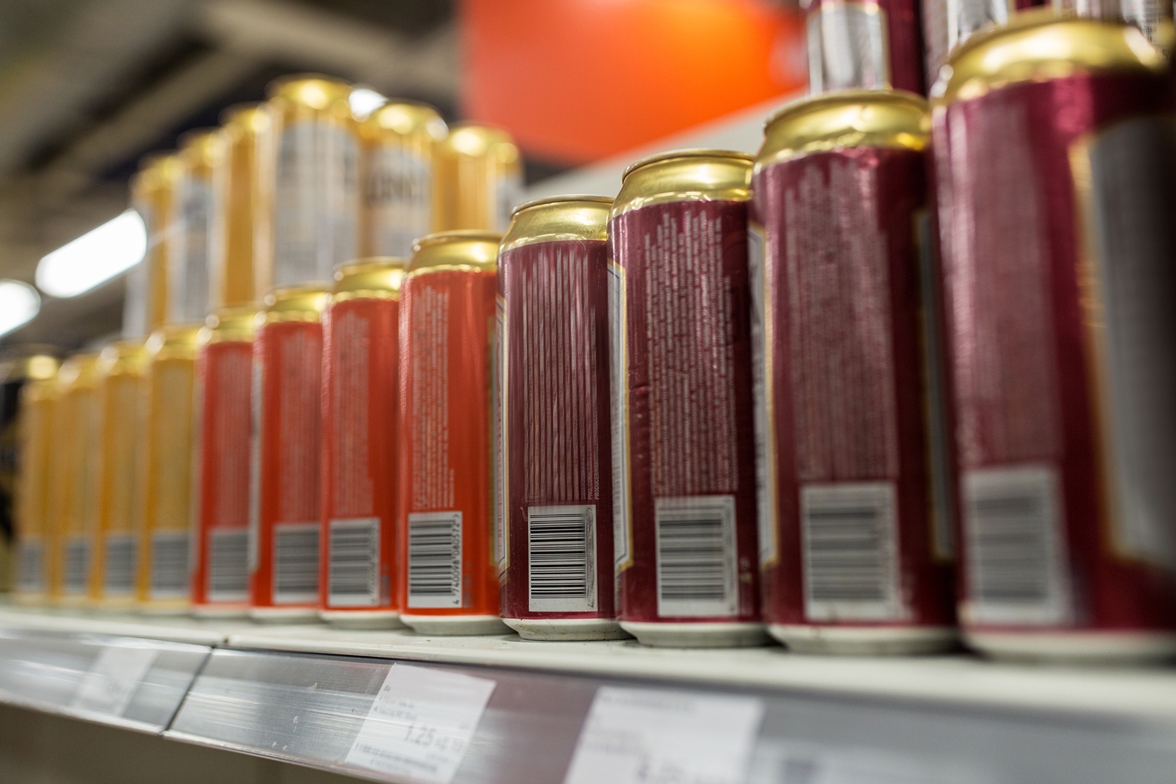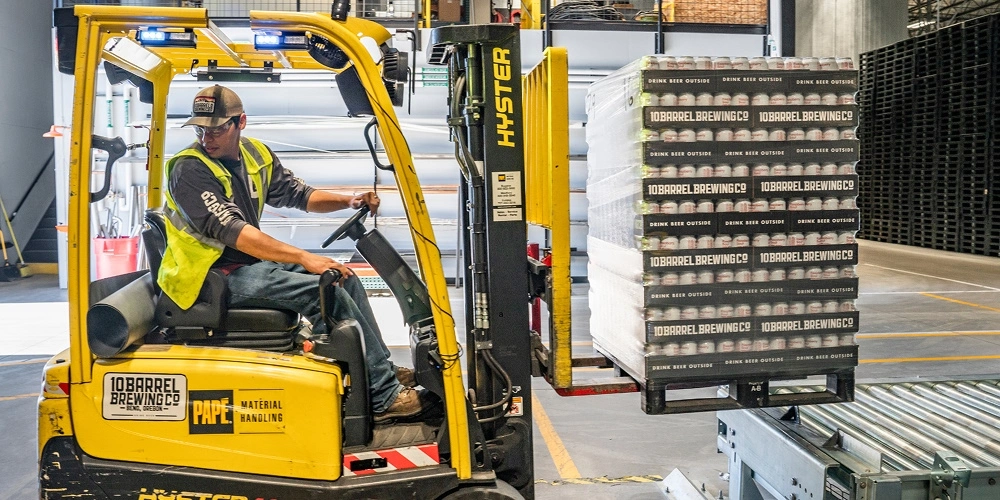Table of Contents

Building a Beverage Business Plan: A Step-by-Step Guide
Published Date: 12 February 2025
Last Updated: January 2026
Launching a beverage brand requires a strategic beverage business plan. From market research to financial planning, this guide helps manufacturers navigate the beverage industry effectively. Learn how to build a business idea into a profitable reality.
The beverage industry is competitive, and starting a beverage brand requires more than just a great product idea. It requires a strategic roadmap to success.
A well-crafted beverage business plan is the foundation of any thriving startup, guiding everything from funding and branding to distribution and logistics.
It doesn’t matter what type of beverage you’re focusing on, either. Whether it’s soft drinks, beer, cider, or a health-focused drink like kombucha, this guide will take you through each step of building a solid business plan to position your beverage business for long-term success.
Why a Business Plan Matters in the Beverage Industry
A strong business plan is needed for securing investors, aligning your team, and setting clear, measurable business goals. Without one, navigating the competitive beverage industry can be overwhelming for you and anyone else involved.
Potential investors and partners seek a clear vision backed by solid financial projections, thorough market research, and a sustainable brand strategy. A well-crafted business overview delivers all of this and more.
By focusing on financial planning, strategic brand building, and clearly defining your business goals, you can lay the foundation for lasting growth.

Source: Canva
How to Launch a Beverage Brand: Your 8-Step Beverage Business Plan
Developing a beverage company business plan involves eight essential steps. Here’s how you and your management team can lay the foundation for a successful beverage manufacturer.
Step 1: Define Your Beverage Brand Vision and Mission
Before diving into logistics and finances, establish a clear identity for your beverage business. Your brand vision should outline long-term goals, while your mission statement defines the purpose of your business and how it meets market demands. It’s one of the key steps in growing a startup beverage business.
- Refine the USP (Unique Selling Proposition): What sets your beverage apart? It could be organic ingredients, sustainable packaging, or an innovative formula.
- Develop a brand story: Potential investors and customers connect with compelling narratives. What is your business history? Why did you start this brand?
- Create brand guidelines: Define your tone, visuals, and messaging to ensure consistency across marketing channels.
Step 2: Conduct Market Research
Understanding the competitive landscape for beverage startups is an important step in effectively positioning your product. Conduct thorough market research to identify trends, key players, and consumer behavior.
- Analyze potential competitors: Study their branding, distribution channels, pricing models, and customer engagement strategies. What do they do well? What could you do better, or differently? What aren’t they doing?
- Identify your target market: Determine the demographics and preferences of your target audience.
- Leverage industry reports: Use data and resources like IBISWorld to understand the current market size and growth trends.
Step 3: Develop Your Product Concept
Your product is at the heart of your beverage business plan. Now is the time to test your business idea through focus groups or sampling events.
- Experiment with formulations: Use small-batch production to optimize taste and shelf stability.
- Source quality ingredients: Establish relationships with suppliers early and explore options for organic, non-GMO, or locally sourced components.
- Develop prototypes: Work with packaging designers to create prototype labels and bottles to assess consumer reactions.
Step 4: Outline Your Business Model
A beverage business plan must clearly define how your company will operate and generate revenue. This may include a detailed description of your packaging options and shipping logistics.
- Choose the right structure: Decide on your legal structure, whether to operate as an LLC, S-corp, or sole proprietorship, for tax and liability purposes.
- Define pricing strategy and margins: Calculate production costs, distributor markups, and retailer profit margin to ensure every sale covers your costs.
- Diversify revenue streams: Explore selling through direct-to-consumer (DTC) channels, subscription models, and wholesale partnerships.
Learn more: Should Your Business Have a Beer or Wine Subscription?

Image source: Canva
Step 5: Create a Marketing and Branding Strategy
A well-defined marketing strategy is needed to build awareness. Consider how successful craft brands position themselves.
- Leverage digital marketing: Build a strong online presence with an engaging website, SEO-driven blog content, and email marketing campaigns.
- Invest in social media: Platforms like Instagram and TikTok are key for beverage brands. Run giveaways, collaborate with influencers, and use high-quality visuals.
- Offer promotions and sampling: Drive trial purchases through local events, farmers’ markets, or partnerships with cafes and specialty stores.
Step 6: Establish Financial Projections
Investors want to see financial viability. Your business plan should include:
- Financial statements: Provide cash flow statements and balance sheets.
- Startup costs: Be transparent about the investment required for equipment and initial batches. List raw materials, production, marketing, and operational expenses.
- Profit forecasts: Show when you expect the beverage business to become profitable. Use conservative, moderate, and aggressive sales estimates to account for market fluctuations and uncertainties.
- Funding preparation: Research small business loans, angel investors, or crowdfunding platforms like Kickstarter that can help cover cash flow.
Step 7: Plan Distribution and Logistics
Choosing the right distribution model will impact efficiency and profitability. For instance, knowing the best method for shipping carbonated beverages and making the right arrangements for your business and product can lead to improved sales.
- Understand legal requirements: Manage the red tape associated with transporting beverages, including federal and state regulations, as well as FDA labeling compliance.
- Optimize shipping: Partner with logistics providers specializing in cold chain shipping and temperature-sensitive freight.
- Build retail partnerships: Approach independent retailers, regional grocery chains, and online marketplaces to expand reach.
Step 8: Finalize and Present Your Business Plan
Once you have a detailed description of your operations, refine it into a professional document.
- Create an executive summary: Keep this detailed overview concise yet compelling to capture interest.
- Outline sales strategies: Explain exactly how you will convert customers into loyal fans.
- Use visual data: Investors appreciate charts, financial projections, and infographics for clarity.
Practice your pitch: Prepare to confidently present your plan to investors, distributors, and key stakeholders.

Source: Canva
FAQs About Beverage Business Brands
How much does it cost to start a beverage business in 2026?
For a professional launch, expect to need $500,000 to $1 million in the first year. While small “kitchen-tested” brands can start for $25,000, scaling requires significant investment in production equipment and distribution.
How can I start a beverage company with no money?
“No money” usually means starting small via cottage laws or local markets. To grow, you must pitch to potential investors, apply for grants, or use crowdfunding to cover essential startup costs like formulation and packaging.
What is the fastest-growing beverage industry segment?
Functional beverages are expected to lead the market in 2026. Consumers are increasingly seeking “drinks with purpose,” such as prebiotic sodas for gut health, protein-boosted milks, and non-alcoholic spirits that support mental clarity and hydration.
What are the 7 things in a business plan?
While formats vary, the key components usually include the executive summary, business overview, market research, management team, marketing strategy, operational plan, and financial projections.
Key Takeaways
- Launching a successful beverage brand requires selecting a high-growth segment, such as kombucha or functional soft drinks.
- Establishing a beverage manufacturer involves significant capital for equipment and specialized beverage shipping infrastructure.
- A solid beverage business plan must include cash flow statements and a six-month runway for startup costs.
- Outsource your beverage managed logistics to experts like Brew Movers to handle the red tape of distribution.
- Potential investors seek a strong, unique selling proposition and clear brand building within the beverage industry.
- Focus on your marketing strategy and business goals while using a co-packer to manage high-volume production.
Start Your Beverage Brand with Confidence
A structured beverage business plan is your blueprint for success. By following these steps, you can transform your vision into a scalable and profitable beverage brand.
Need support with logistics and distribution? Brew Movers has you covered! Our white-glove shipping services make transporting beverages and managing logistical headaches a breeze. With over twenty years of expertise, we have the knowledge to ensure your new beverage business gets off to a great start.
Contact Brew Movers for expert guidance on efficiently bringing your beverage brand to market.
Adrian Gram
CEO & Co-FounderA strong skill set to perform analytical assessments, translate them into strategic plans and then build a comprehensive Go-To-Market roadmap that drives execution and delivers results. Versed in empowering and influencing key stakeholders from executive level leadership to field teams, building wide spread adoption that is focused on a common goal, The Customer, Growth and Profits.




